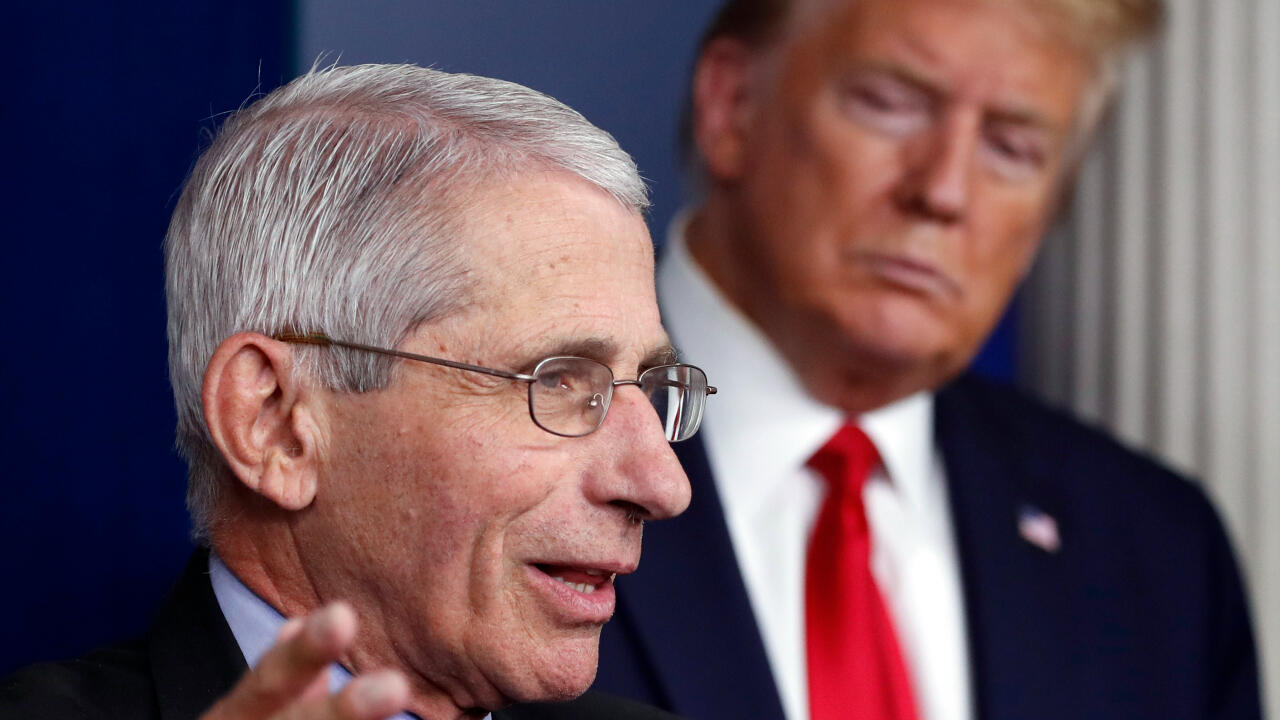First modification:
The 81-year-old doctor Anthony Fauci announced that he will retire next December after five decades as a scientific researcher of infectious diseases in the United States. The Covid-19 pandemic put him in the public eye, since his containment measures to deal with the virus caused him to clash with then-President Donald Trump, who came to classify him as a “disaster.” Fauci continued in the name of science to defend his recommendations.
The American infectious disease doctor, Anthony Fauci, announced this Monday through a statement his professional retirement starting in December after 54 years of public service.
The director of the National Institute of Allergy and Infectious Diseases of the United States, NIAID, was widely known in his country from the Covid-19 pandemic.
The 81-year-old scientist became in 2020 the face of the then President Donald Trump’s government’s fight against the disease, although his medical recommendations confronted him with the president.
Fauci tried to get citizens, in the midst of the deadly waves that the country was suffering, to take the necessary precautions to combat the virus and called for social distancing and the use of masks. Trump, on the contrary, recommended the use of an anti-malarial drug, hydrochloroquine, which was not approved by the Centers for Disease Control and Prevention, CDC, to combat Covid-19.

As the pandemic worsened, Fauci became lonely and marginalized by the government itself, but this was not an impediment to continuing to give interviews to the media where he continued to recommend how to proceed to control SARS-CoV-2.
His scientific position caused him to be the target of political attacks and death threats, for which he was assigned a security detail for his protection.
Despite the criticism, Fauci remains a trusted voice for many Americans, even as scientists are confronted again and again with new strains and variants of Covid-19 or other viruses like monkeypox.
Dr. Fauci, who is the medical adviser to current President Joe Biden and also runs a lab that studies the immune system, said upon his departure that “I definitely think it’s been worth staying as long as I’ve done it. It’s unfortunate, but it’s a fact of life that we’re living in a very, very divisive society right now.”
President Biden, for his part, thanked Dr. Fauci for his years of work and dedication through his Twitter account and said that “now that he is leaving his post in the United States Government, I know that the American people and the entire world they will continue to benefit from Dr. Fauci’s expertise in whatever he does next.” And, he added, “The United States of America is stronger, more resilient and healthier because of him.”
I know Dr. Fauci as a dedicated public servant with wisdom and insight honed over decades at the forefront of our most challenging public health crises.
As he leaves his role, I extend my thanks for his service – America is stronger, more resilient, and healthier because of him.
— President Biden (@POTUS) August 22, 2022
Fauci said that “if ever there was a situation where you wanted a unified approach and everyone coming together for the greater good, it would be when you’re in the middle of a public health crisis…As a doctor and a scientist, I and my colleagues have a responsibility to do the right thing, which is based on science.”
A legacy of five decades
The doctor was appointed by Ronald Reagan in 1984 as director of the infectious diseases branch of the National Institutes of Health, when the country was facing the AIDS crisis. The epidemic had Fauci on the ropes and he received criticism from activists who demonstrated for the government’s inaction, but it was he who put the issue on the table of the Reagan Administration.
Under President George W. Bush, Fauci helped develop the President’s Emergency Plan for AIDS Relief, PEPFAR, with the idea of bringing HIV treatment to developing countries. In 2008, Bush awarded Fauci the Presidential Medal of Freedom.
He is known for his candor and ability to communicate complex medical terminology in everyday language. The doctor has been a key adviser to five other presidents and has spoken from a scientific perspective on other outbreaks such as SARS, pandemic flu, Ebola, Zika and the 2001 anthrax attacks.
After his departure, he expressed his decision to the American news agency ‘The Associated Press’: “I have gone to this campus and to the laboratories and the hospital every day, including most weekends, for 54 years. The thought of leaving this, obviously, is bittersweet.” In addition, he mentioned that his duties have been “the honor of a lifetime”, but that it was time to “follow the next chapter of my career”.
He also announced that he will continue to work and wants to use his experience “to inspire the younger generation of scientists and aspiring scientists” to consider a career in public service.
Fauci said his stay until December will give the government the time it needs to find a new director for NIAID, whose annual budget exceeds $6 billion. In addition, he said he wanted to stay to help deal with an expected fall spike in Covid-19 infections.
With AP and Reuters





![[Img #74683]](https://thelatestnews.world/wp-content/uploads/2024/12/The-main-mistakes-to-avoid-when-betting-on-electronic-sports-150x150.jpg)









Add Comment